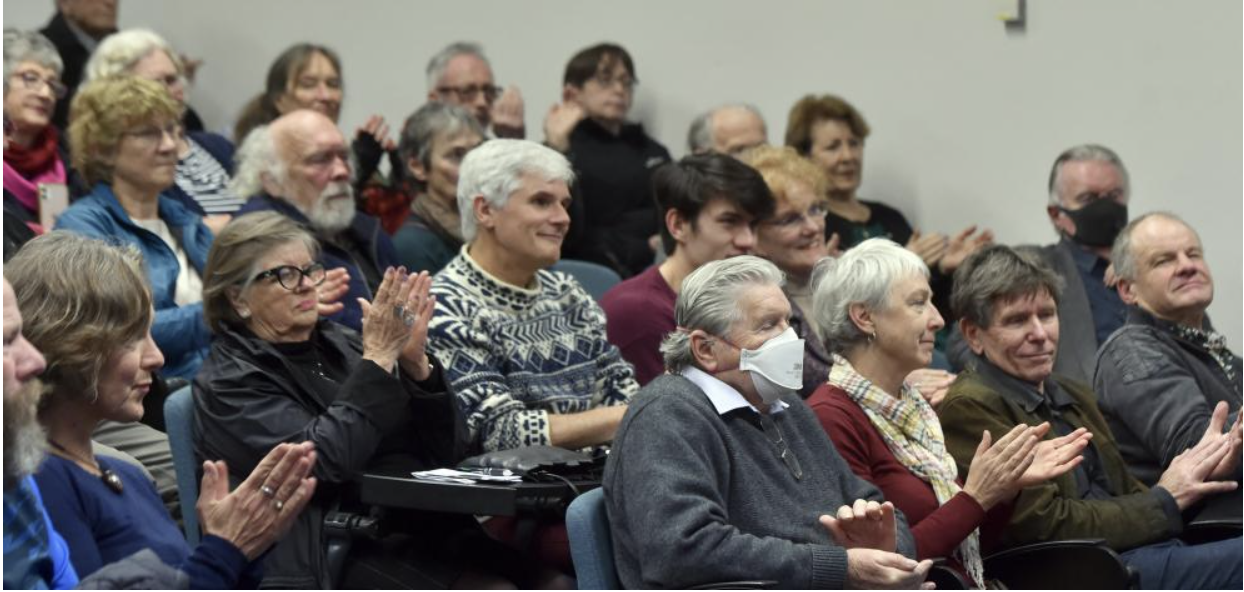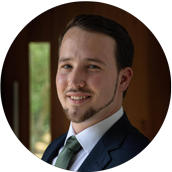
Packed event at Otago University shows Kiwis willing to stand for free speech
As we continue our tour around New Zealand’s universities, more and more Kiwis are coming out to support the right to express themselves. At Otago University, we had 200 people crammed into the lecture theater we were given, with others standing outside in the halls to listen to our panel on Wednesday night.

Students and staff from the university, along with the general public, listened to the discussion moderated by Peter Williams, with MPs Dr. James McDowall and Michael Woodhouse, and local Mayoral candidate Lee Vandervis, discussing the dangers of censorship. Media covering the event claimed ‘Free speech was given vigorous expression in a packed University of Otago lecture theatre.’
If you want to listen to the whole event, you can find a recording here.
The Greens, Labour, and Students Association refuse to front
From the outset, I noted the fact there were only white men from the right on the panel. Opponents of our organisation might try to characterise this as a biased attempt to shut down any contrary perspectives. This was not the case at all.
For over 6 weeks, we talked with members of the Greens Caucus, each of the 4 members of Parliament that are part of the Labour caucus in Dunedin, the President of Otago University Student’s Association, their Political Representative, and several other student clubs. Several of them committed to attend, only to pull out last minute, like Dr. Marcelle Dawson, a Head of Department at the University, who backed out last minute.
Their voices would have been beneficial to our discussion and our debate was impoverished by their absence. But unfortunately, I can’t help but believe that it is those who refuse to engage in conversation, those who refuse to even consider ideas they disagree with or be seen with those who believe differently, who are the most impoverished.

By refusing to be seen with those who hold different opinions to us, to express our thoughts to those who hold ‘dangerous’ ideas, we shut down any chance for meaningful debate. This isn’t leadership and frankly, we expect better from our MPs, universities, and student representatives.
Lawyers investigated for transgender comment
There are some affronts to free speech that are so absurd, you’d think they must be fiction. If only that were the case.

Lawyers Giles Brant and Peter Hardie claim the investigation, which was dropped in July 2020, should never have happened and say their freedom of expression was under the microscope, and the sealed decision to drop the investigation would be a valuable resource in educating lawyers. The emails included discussions about transgender women, referred to by the men’s lawyer Michael Fisher as “biologically men”, playing sports in a league with “biological women”.
In the email alleging the misconduct, the complainant said the comments made were “distastefully sarcastic” and “extremely discriminatory”. This is now enough to merit an investigation into private correspondence.

The very idea that someone, somewhere is expressing opinions that our would-be-censors find ‘offense’ or distasteful is enough to see them try and gag anyone who dares voice a provocative perspective.
Waikato University researchers highlight bias in covid-related speech
A basic flaw with censoring ‘harmful speech’ is the bias that cannot be avoided. We have an idea in our mind of who is hateful and harmful, and often work back from there to decide what speech we won’t allow… but what if our starting point is all wrong?
Researchers at the University of Waikato manually analysed 1,000 tweets from 2020 containing the hashtag #Covid19NZ (or variations of that) to discover which language strategies people employed to persuade others. They also included their political stance – whether they were supportive of government lockdown measures or not. Dr. Andrea Calude (pictured) claimed:
‘What we found surprised us: users opposed to covid-19 restrictions who tweeted against government measures took greater care to soften their directives, opting for more polite and vague language; those in support of government actions used more forceful imperatives.’
This research contradicts the popular narrative that we are told, that those opposed to government measures during covid were the most belligerent, aggressive and ‘harmful’. It’s the same story we’re told about those who question or challenge a whole host of complex issues we’re facing today.
This is the problem with would-be-censors and tactics like ‘hate-speech’ laws. Inevitably, they are co-opted to push a political/religious/cultural agenda that isn’t actually about stopping hateful or harmful speech, they’re about stopping speech they don’t like. This swings both ways, Left and Right, and is why letting everyone have their say freely is the most peaceful path forward.
On Point talks free speech and the pitfalls of censorship

Free speech has been both used and abused by the Left and Right, but unfortunately it seems that on both sides of the House today, MPs are backing down under censorious pressure to try and silence others. While there are many issues I may disagree with Simon O’Connor on, we can always do so openly, and he’s a consistent defender of free speech in Parliament. It was a pleasure to sit down on his popular podcast On Point and discuss our recent reports on local council candidates and the state of free speech at university.


Jonathan Ayling
Spokesperson
Free Speech Union
www.fsu.nz

